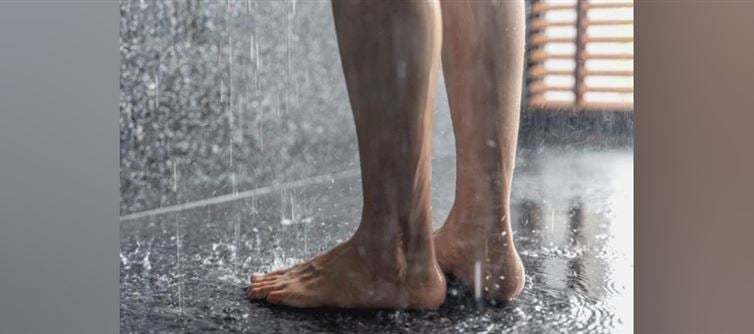
It feels convenient, almost instinctual: a quick pee under the warm shower. But what seems harmless today could be quietly sabotaging your health. Experts warn that urinating while showering may trigger a cascade of problems—from bladder strain and urinary tract infections to long-term neural conditioning that trains your brain to react inappropriately. What appears as a small shortcut in daily life could, over the years, wreak havoc on your pelvic muscles, bladder efficiency, hygiene, and even mental comfort.
1. Straining The Bladder And Pelvic Muscles 💪
When you urinate in the shower, your body is not in a fully relaxed state, preventing the pelvic floor muscles from functioning properly. Over time, incomplete emptying of the bladder leaves residual urine, putting constant stress on bladder muscles. This weakens efficiency and can lead to chronic bladder issues, especially in women, who are structurally more vulnerable. What seems like a harmless habit today can silently deteriorate muscle function over the years.
2. Increased Risk Of Urinary Tract Infections (UTIs) 🚨
Residual urine trapped in the bladder becomes a breeding ground for bacteria, which can travel upward to the kidneys. women are especially at risk, potentially experiencing burning sensations, pain, and fever. What starts as a minor convenience can escalate into serious infections requiring medical attention. Repeated exposure magnifies the risk, making this a habit that could cost both health and money.
3. Neural Conditioning: Your Brain Will Trick You 🧠
The human brain is highly adaptable—and alarmingly easy to train. Urinating repeatedly during showers can make your brain associate the sound of running water with the urge to pee. Eventually, even the sound of taps or faucets in public spaces may trigger sudden urges, causing embarrassment, discomfort, and disruption in daily life. This isn’t just an inconvenience—it’s a conditioned reflex that can persist for years if ignored.
4. Hygiene Nightmare: bacteria, Smell, And Extra Cleaning 🦠
Urine contains ammonia and urea, which bacteria feed on, creating odors and unhygienic conditions. Frequent urination in the shower promotes bacterial growth not only in the shower but also in surrounding areas, making constant cleaning necessary. Even rigorous scrubbing cannot eliminate all residues, affecting household hygiene and creating extra work and discomfort for everyone.
5. Minor Habit, Major Long-Term Consequences ⚠️
Doctors emphasize that occasional urination in the shower is unlikely to cause serious harm. But when this becomes a daily habit, it may result in:
• Weakened pelvic floor muscles
• Strain on bladder efficiency
• Increased urinary infections
• Conditioned neural responses leading to bladder control issues
Simply using the toilet at appropriate times and avoiding the shower shortcut can prevent long-term damage and preserve both physical and mental well-being.
Disclaimer ⚠️
This article is for informational purposes only and does not constitute medical advice. Individual health conditions vary; consult a qualified healthcare professional for concerns related to urinary health, pelvic floor strength, or infections.




 click and follow Indiaherald WhatsApp channel
click and follow Indiaherald WhatsApp channel